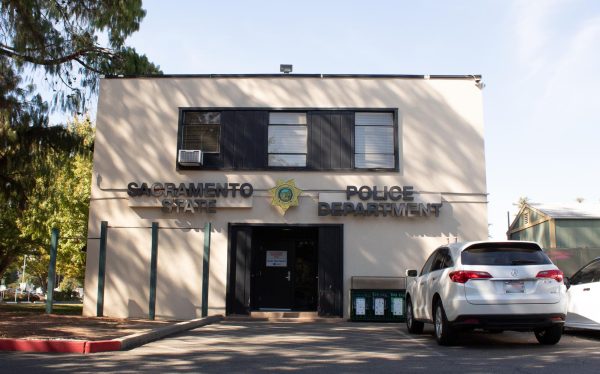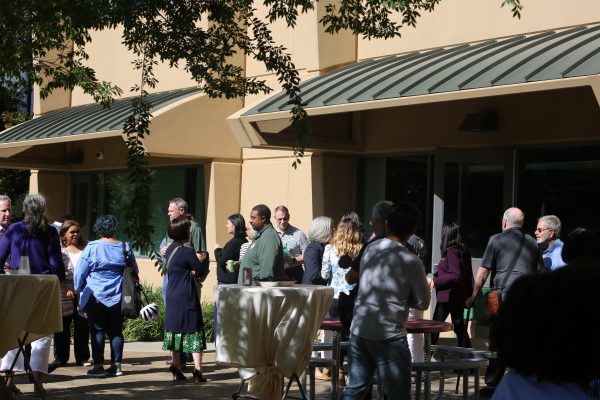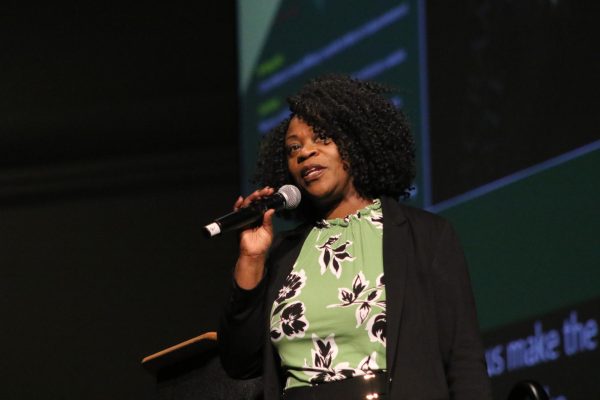‘Free as a Bird’ not a turkey’s anthem
January 7, 2007
Lying on the Thanksgiving table is that delicious, fresh and warm turkey, filled with stuffing, dripping with butter and surrounded by mashed potatoes, gravy, cranberry sauce and all the other Thanksgiving sides.
Sounds good right?
But what this turkey had to go through to arrive on the dinner table doesn’t look or sound quite as appealing.
Many of us believe that turkeys are raised to run free in the rural countryside in a small, mom-and-pop farm with other animals, where they were fed only cornmeal. In many cases, they are not raised this way.
According to Farm Sanctuary, the nation’s largest farm animal rescue and protection organization, poultry are typically raised in a large factory setting where they spend their short lives in crowded warehouses with less than three square feet to move around.
These turkeys have been genetically altered in order to grow twice as fast and large as wild turkeys, which makes them unable to walk and reproduce normally because their large frame is too heavy to be supported by their legs.
The birds usually have short lives in these conditions and when they are not trampled or pecked to death by other turkeys, they are slaughtered at the age of 14 to 20 weeks of age.
In order for the turkeys not to injure each other, the ends of their beaks and toes are cut off, without anesthesia, when they hatch.
When the slaughtering does occur, the machinery sometimes misses the turkey or the birds end up falling off the conveyor belt. The birds end up dying later of exposure, starvation, or being run over by trucks or forklifts.The good news is that this year’s Thanksgiving turkey doesn’t have to be one of these victims, because local specialty stores offer turkeys without the injected hormones and cruel treatment.
These turkeys are free of growth hormones and don’t spend their lives in cages. They run free and wild, eating natural foods.
One of these farms is Diestel Turkey Ranch, located in Sonora, which supplies the Sacramento Natural Foods Co-Op with their turkeys.
The store ends up selling more turkeys than it can order and has to stock up with more every year.
Another farm that supplies the local specialty stores, such as the Nugget Market in West Sacramento, is Branigan Turkey Farm, a small family-owned farm in Woodland that has been open since 1942.
At the Branigan Turkey Farm turkeys are raised for 26-28 weeks before being processed, while quality and customer service are their priority, Terry Branigan said.
“We feed our turkeys all grains, no antibiotics or medications. We feed them just a lot of good grains,” Branigan said.
“The way we do it, you get more meat per bone. That’s where it gets more expensive because these birds are raised longer so we have to continue feeding them so they (become) large and healthy,” Branigan said. “We raise them longer, just as we always have for the last 62 years, so we can finish the product out and supply a better turkey.”
The farm’s turkeys are also raised in a free-range atmosphere with no cages.”They are raised free-range because they get to move around in the fresh air and that’s good for anyone,” Branigan said. “They get good food and have the room to be turkeys.”
Compared to other turkey farms, Branigan says there is a few that do free-range and organic farming, but Branigan Turkey Farm has been doing them since they started.
“We don’t skimp on anything, we guarantee our turkeys 100 percent,” Branigan said. “We are so small that we work directly with our customers and will go out of our way to fix any problems that they have with our birds.”
Branigan’s birds also come in clear bags because they feel that the customers ought to be able to see what they are buying.
“We are proud of our turkey and we want our customers to see what they are buying. That’s what we do here, we are not ashamed of our birds,” said Branigan. “Customer satisfaction is our No. 1 concern.”
Michael Stockinger can be reached at [email protected]



































































































































